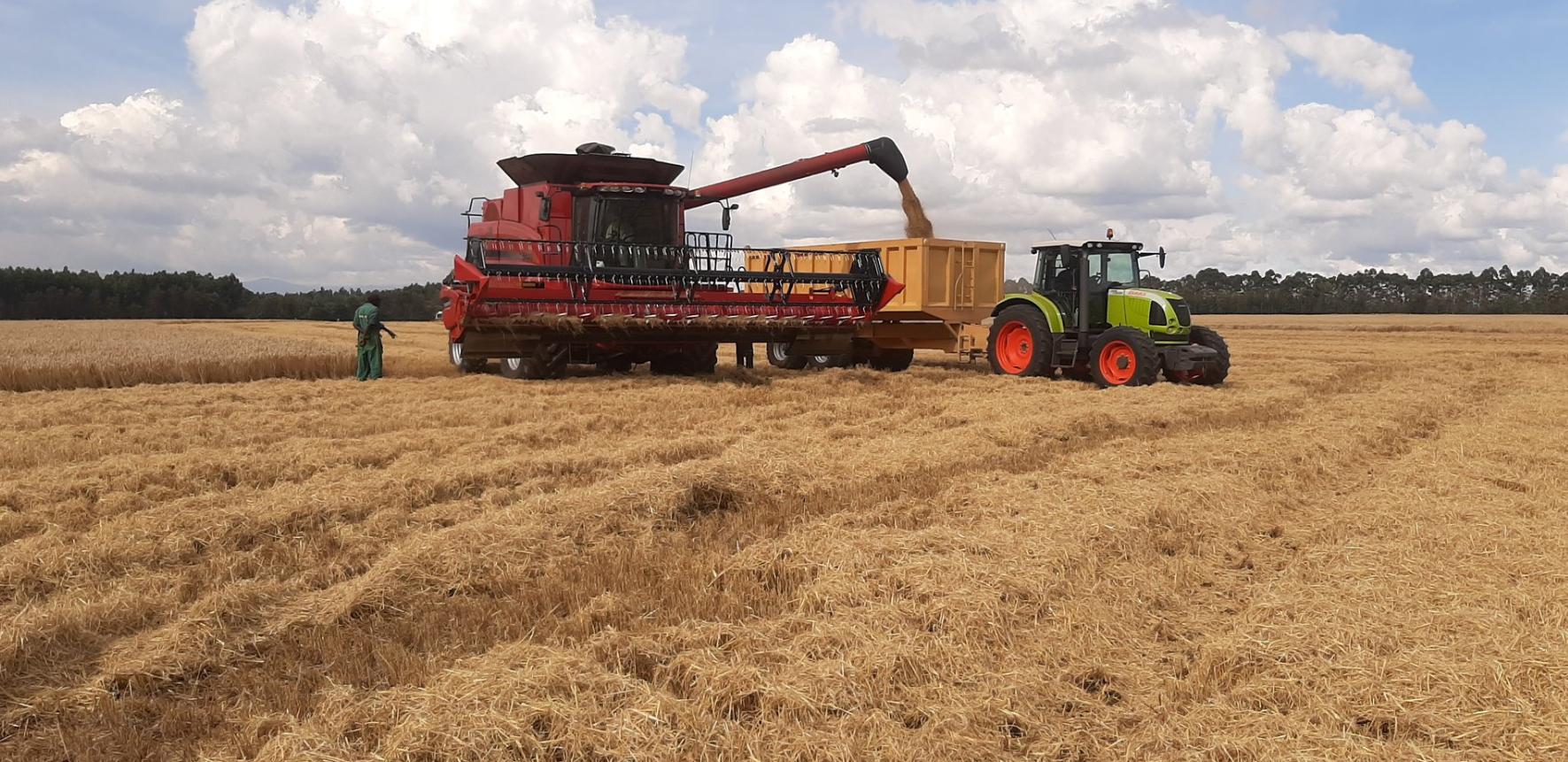When I traveled to the United States from my family’s farm in Kenya two years ago, I saw firsthand how agricultural science and engineering can help feed the world””and now I’m hoping that a free-trade deal between our two countries will introduce innovative technologies to Kenya so that we can do a better job of feeding ourselves.
All of a sudden, a U.S.-Kenya Free Trade Agreement is a distinct possibility. This follows Kenyan President Uhuru Kenyatta’s meeting last month at the White House with U.S. President Trump. On February 6, President Trump officially announced his intention to begin trade talks with Kenya. When a reporter asked him if he intends to sign an agreement, the U.S. President replied with a single word: “Probably.”
A free-trade agreement between these two countries makes sense because it would be beneficial to both nations. Two-way trade is already worth about $1 billion per year.
 I am hopeful a trade agreement will focus on plugging in complementary aspects of crop production in both countries, incorporating the two countries’ unique production culture and climate suitability for cash crops. I would be happy to see exports of cash crops such as tea, horticultural, coffee, and spices among other unique commodities that Kenya produces enhanced. In return, the USA can export crops such as soybean, sugar beet, etc. that are not commonly grown in Kenya.
I am hopeful a trade agreement will focus on plugging in complementary aspects of crop production in both countries, incorporating the two countries’ unique production culture and climate suitability for cash crops. I would be happy to see exports of cash crops such as tea, horticultural, coffee, and spices among other unique commodities that Kenya produces enhanced. In return, the USA can export crops such as soybean, sugar beet, etc. that are not commonly grown in Kenya.
My father started our farm in western Kenya, near the city of Eldoret, in 1998. Today on about 400 hectares, we grow four main crops: maize, wheat, barley, and canola. We also raise short season crops such as sunflowers that require less rainfall and act as cover crops.
Everything we grow is for local consumption here in Kenya. Our maize and wheat go to our mill, where we process them into final products that we sell directly to Kenyan customers. We export nothing because Kenya can’t grow enough of these crops for itself.
We just aren’t efficient enough. According to SARD-SC, a Nigeria-based group that supports agricultural development, smallholder farmers in Kenya account for 80 percent of our country’s wheat acreage but only supply about 20 percent of Kenya’s demand.
To make up the difference, Kenya imports about 2 million metric tons of wheat per year. The United States accounts for just a tiny portion of this amount: about 100,000 metric tons per year, according to Agri-Pulse.
The American share will grow quickly if a free-trade agreement reduces or eliminates the 10-percent tariff on these U.S. crops. Another goal for U.S. trade diplomats will be to knock down the 35-percent tariff on rice.
From my standpoint as a Kenyan farmer, a deal could also provide new opportunities for me to enjoy better access to modern equipment and advanced technologies that can make us more efficient. On our farm, for example, we use John Deere tractors, which we buy directly from the mother company in the United States. We also source many of our crop-protection products from U.S. companies. A better flow of goods, services and information between our countries will help bring more of these excellent tools to Kenya.
I’m especially hopeful that Kenyan farmers will gain better access to GM technologies.
For at least a decade, Kenyan farmers have called on our government to approve the planting of GM crops. Just recently, Nairobi has permitted the commercialization of Bt cotton””a welcome if long overdue development.
The next step involves GM food crops. They can’t arrive soon enough. Last year, according to the Kenya Agricultural and Livestock Research Organization, farmers harvested only 35 million bags of maize when they had the potential for 60 million bags.

If Kenya aims to boost its yields and achieve genuine food security, we’ll need to adopt a wide range of technologies, from the Bt corn that many American farmers may now take for granted to the cutting-edge innovations of gene-editing, which hold the potential to produce much-desired food crops like gluten-free wheat.
When I had the opportunity to tour a large-scale family farm in Illinois two years ago, I saw the amazing potential of GM technology firsthand. Today, I’m hoping that a U.S.-Kenya Free Trade Agreement will finally increase the opportunity for me to bring these technologies to my home.


